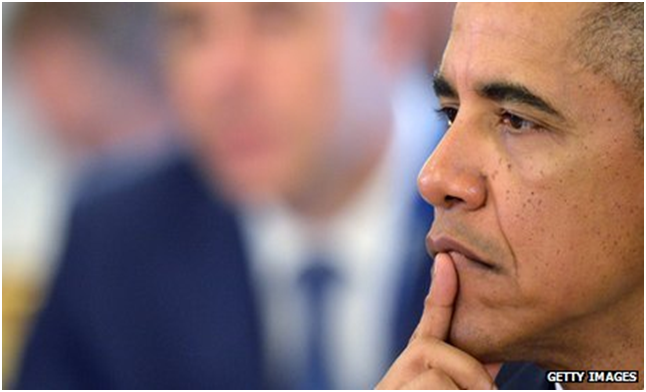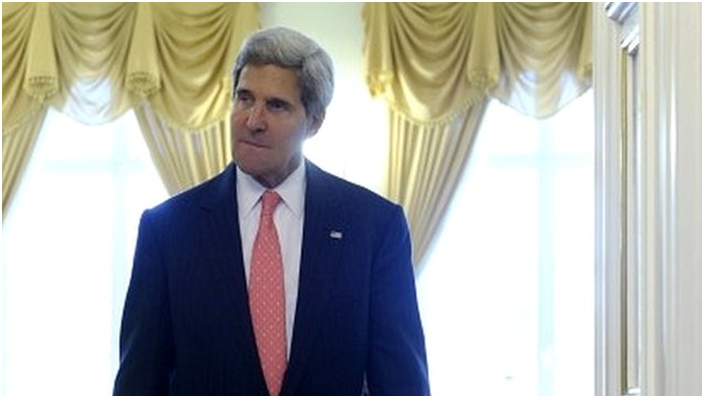By the end of this package you should be able to:
Independent learning gives you more choice about what, when and how fast to study. It also prepares you to learn after complete full time education.
In order to study independently you need to be able to set your own aims, choose how you want to study and reflect on the usefulness of studying that you do and on your overall progress.
Since you have chosen to study one of the reading packages, we can assume that you want to learn more about the subtleties of language through reading. These include looking at the extent to which we can make educated and accurate assessments of the vocabulary and expressions within a text, distinguishing when a writer is presenting fact and opinion and reading not only the words written by the author but finding those sentiments and ideas which are hidden in the meaning, context and nuance of the text. We shall also look at the language features and text structure of different genres.
The online activities are designed to help you to develop an appreciation and enjoyment of reading so that it becomes something you look forward to doing rather than an arduous task you do in order to complete an assignment.
Discursive texts often seem very difficult to read. Generally, writers begin by taking a position and then they discuss arguments supporting and opposing this position.
As a reader, this part of the reading module will help you to:
Answers:
| Very negative | Negative | Neutral | Positive | Very positive | ||
|---|---|---|---|---|---|---|
| 1. | Wong Lam appointed to Head ICAC | ✔ | ||||
| 2. | Triumph for Hong Kong Climbers | ✔ | ||||
| 3. | Beijing claims Hong Kong political climate 'not yet mature | ✔ | ||||
| 4. | PCCW Welcomes Improving Performance | ✔ | ||||
| 5. | Treatment of Prisoners Scandalous at Guantanamo Bay | ✔ | ||||
| 6. | Ecstatic Crowds Celebrate Peace Deal | ✔ | ||||
| 7. | European Union reels after French "Non" | ✔ | ||||
| 8. | Future is bright ASEAN leaders told | ✔ | ||||
| 9. | Shanghai stocks slump | ✔ |
Instructions
When we read a text such as a newspaper or magazine article, the position of the writer may not always be immediately obvious. The writer may use certain strategies to present his stance in a more subtle way or even to mask it through the nuance of the language used. One method is to use words with a positive, negative or neutral connotation.
Answers:
| Word | Positive meaning | Negative meaning |
|---|---|---|
| terroris | ✔ | |
| childish | ✔ | |
| arrogance | ✔ | |
| astute | ✔ | |
| stubborn | ✔ | |
| difficult | ✔ | |
| stingy | ✔ | |
| freedom fighter | ✔ | |
| ambitious | ✔ | |
| sagacious | ✔ | |
| strong willed | ✔ | |
| stagnant | ✔ | |
| confidence | ✔ | |
| challenging | ✔ | |
| childlike | ✔ | |
| economical | ✔ | |
| over ambitious | ✔ | |
| headstrong | ✔ | |
| stable | ✔ | |
| determined | ✔ |
Answers:
| Positive connotation | Negative connotation |
|---|---|
| youthful | immature |
| disabled | handicapped |
| laid-back | lackadaisical |
| slim | skinny |
| inquisitive | nosy |
| energetic | hyperactive |
| debate | argue |
| casual | sloppy |
| persuade | brainwash |
| flexible | indecisive |
Some words can have both a positive and a negative meaning depending on the context. For example, look at the use of the different forms of the word ‘aggressive’ in these sentences.
Answers:
Many newspapers and media organizations pride themselves on their objectivity; that is their insistence on reporting the facts and commenting on their significance as opposed to trying to persuade or influence popular opinion.
Of course there are an equal if not greater number of media organs that purport to be unbiased and fair but in fact follow their own political agenda. Examples of these include Rupert Murdoch’s Fox News in the United States or the Sun newspaper in the UK in Asia the English language newspaper of the PRC, China Daily. It is quite obvious though that these media outlets are ‘selling an opinion’ as they do so without very much finesse or subtlety.
And then there are news providers which have a reputation for reporting balanced and fair news stories but who, upon closer scrutiny, may be more cleverly influential than we think. Through the repeated us of negative or positive vocabulary, through over reporting one point of view and under-reporting a counter opinion and through selecting words with an inferred meaning, some news organizations are able to present an influential position through the subtle manipulation of language.

Read this news story on the situation in Syria in September 2013 and then answer the questions that follow.
Reprinted with permission from BBC(
http://www.bbc.co.uk/news/world-us-canada-23999066)

He was speaking after returning to the US from a G20 summit in Russia, which failed to produce international agreement on military action in Syria.
The US 1.accuses President Bashar al-Assad's forces of killing 1,429 people in a poison gas attack on 21 August.
EU foreign ministers say there should be no action before the UN reports back on chemical weapons attacks in Syria.
Mr Obama faces a 2.tough week of trying to persuade Congress to authorise military action.
He will also seek public support in a White House address on Tuesday.
Mr Assad and his ally President Vladimir Putin of Russia blame 3.rebels for the attack.
In a radio and internet address, Mr Obama said he understood that the American people were "4.weary after a decade of war" and insisted this would not be an "open-ended intervention" akin to the wars in Iraq and Afghanistan.
"But we are the United States of America. We cannot turn a blind eye to images like the ones we've seen out of Syria.
"Failing to respond to this 5.outrageous attack would increase the risk that chemical weapons could be used again, that they would fall into the hands of 6.terrorists who might use them against us, and it would send a horrible signal to other nations that there would be no consequences for their use of these weapons.
"All of which would pose a serious threat to our national security."
Any action, President Obama said, would be "limited both in time and scope - designed to deter the Syrian government from gassing its own people again and degrade its ability to do so".
Russia 7.restated its opposition to any strike at the G20 summit in St Petersburg, with Mr Putin warning that military intervention would 8.destabilise the region.
Both Russia and China, which have refused to agree to a UN Security Council resolution against Syria, insist any military action without the UN would be illegal.
President Obama has only a few days to convince Congress, which returns from its summer recess on Monday.
Both the Senate and House of Representatives could vote on the Syrian issue as early as next week.
Mr Obama has acknowledged that he faces a "heavy lift" to win congressional 9.backing.
A poll commissioned by the BBC and ABC News suggested more than a third of Congress members were undecided whether or not to back military action - and a majority of those who had made a decision said they would vote against the president.
Many remain concerned that military action could draw the US into a prolonged war and spark broader 10.hostilities in the region.
In Europe for a four-day visit, US Secretary of State John Kerry met his French 11.counterpart, Laurent Fabius, in Paris and both men spoke of their determination to respond to the use of chemical weapons in Syria.
Mr Kerry said the US and France were not talking about going to war, but discussing limited military action, aimed at degrading the Syrian authorities' ability to use chemical weapons.
Repeating a phrase he used earlier in the week, he said the international community was facing a "Munich moment" - a reference to the policy of 12.appeasement that failed to stop Nazi Germany in the 1930s.

It was not, he said, the time to allow unfettered use of some of the most 13.heinous weapons on Earth.
"There are a number of countries, in the double digits, who are prepared to take military action," he added. "We have more countries prepared to take military action than we actually could use in the kind of military action being contemplated."
Earlier, in the Lithuanian capital Vilnius, he welcomed a statement on Syria by EU foreign ministers who were meeting there.
The EU ministers issued a statement saying that the available intelligence "seems to indicate strong evidence that the Syrian regime is responsible for the attack".
While calling for a "clear and strong response", the ministers said that the 14.crisis in Syria should be addressed "through the UN process" and said they hoped UN investigators could issue their preliminary report on the attack as soon as possible.
They said they welcomed French President Francois Hollande's call to wait for this report before taking any further action.
Mr Kerry welcomed the EU's "strong statement about the need for accountability". A senior US state department official who attended Mr Kerry's meeting with the ministers said Mr Kerry had made clear the US had not made any decision to wait.
The US secretary of state is due to meet Arab League representatives in Paris before travelling to London for further talks with UK Foreign Secretary William Hague.
Some 100,000 people have died in the two-and-a-half-year-old Syrian 15.conflict, according to the UN.
Answers:
| Negative | Neutral | Positive |
|---|---|---|
1. accuses 2. tough 3. rebels 4. weary 5. outrageous 6. terrorists 8. destabilise 10. hostilities 12. appeasement 13. heinous 14. crisis 15. conflict | 7. restated 9. backing 11. counterpart |
Answers:
| Section | In favour of taking military action in Syria | Neutral | Against taking military action in Syria |
|---|---|---|---|
| ✔ | |||
| ✔ | |||
| ✔ | |||
| ✔ | |||
| ✔ | |||
| ✔ | |||
| ✔ | |||
| ✔ |
So through analyzing the percentage content of the article together with the connotation of much of the vocabulary, would you say that this is a balanced presentation of facts with some commentary on its significance or is it a biased pro-American, pro-war piece of writing cleverly disguised as balanced journalism?
Answers:
There is no answer to this – you decide. However, overall it appears to be a fairly factual piece of writing but there is certainly an imbalance of opinion. Having said that, this is only one article so it would be best to search the BBC for other articles on the same story presenting arguments opposing military action in Syria,
